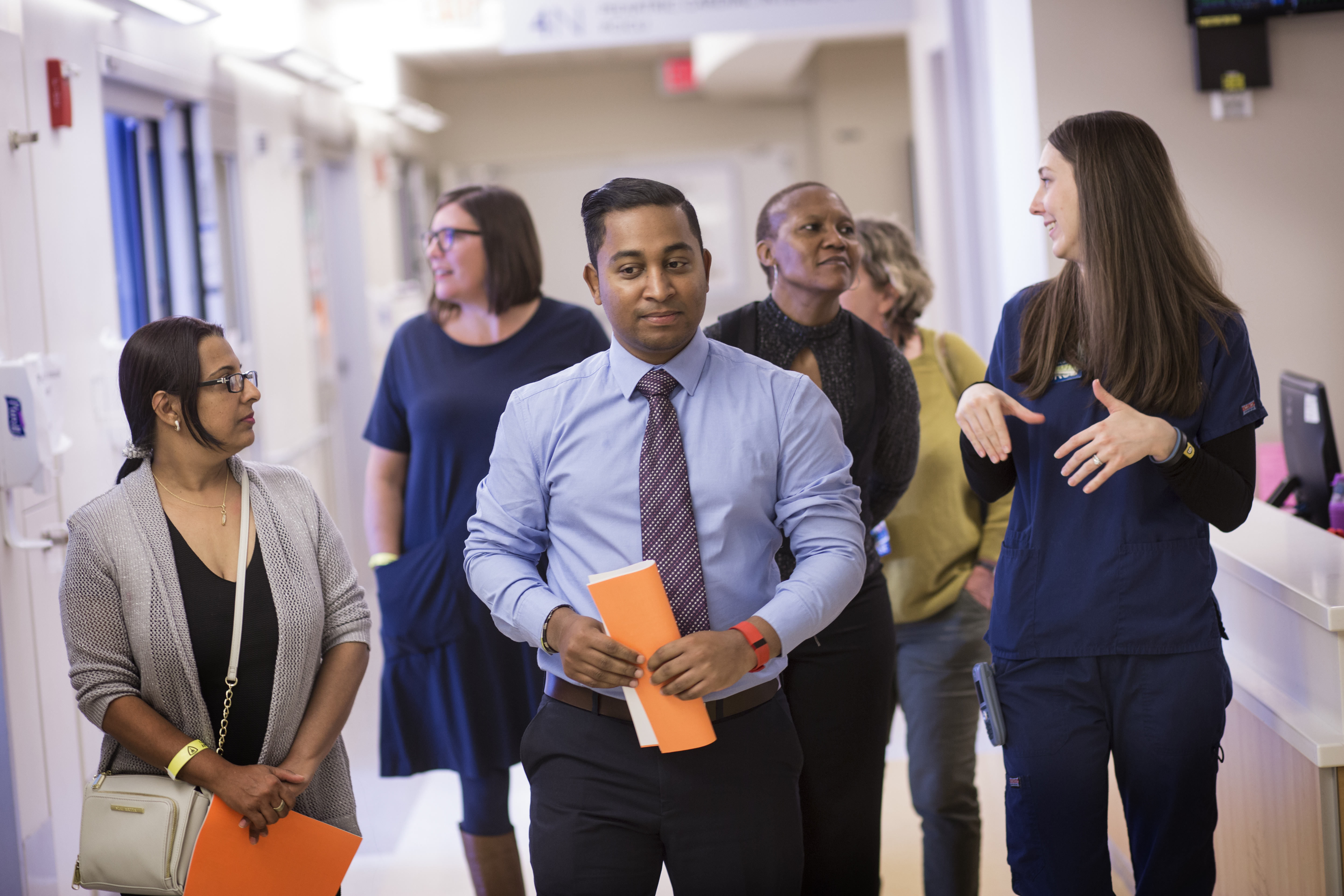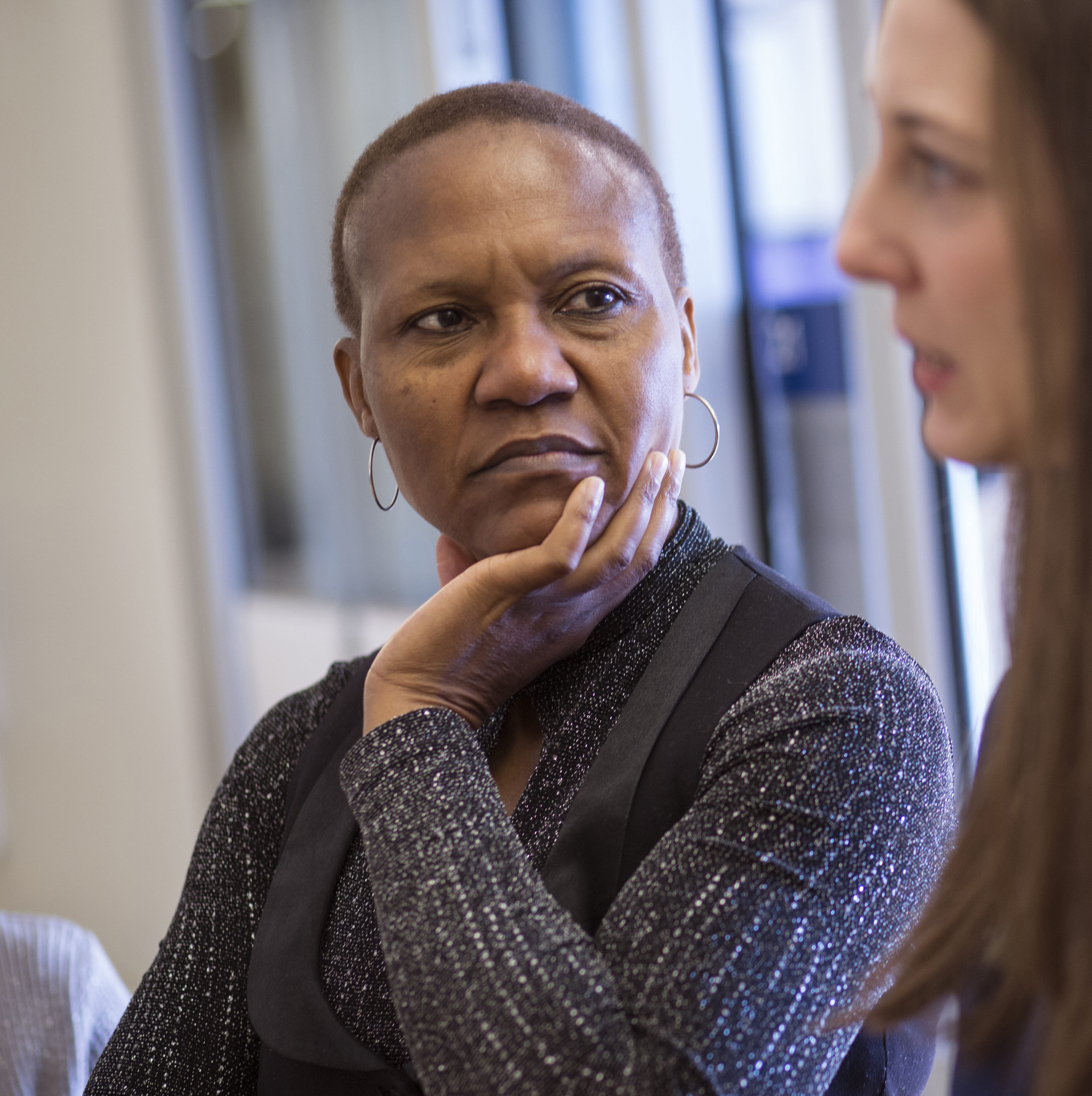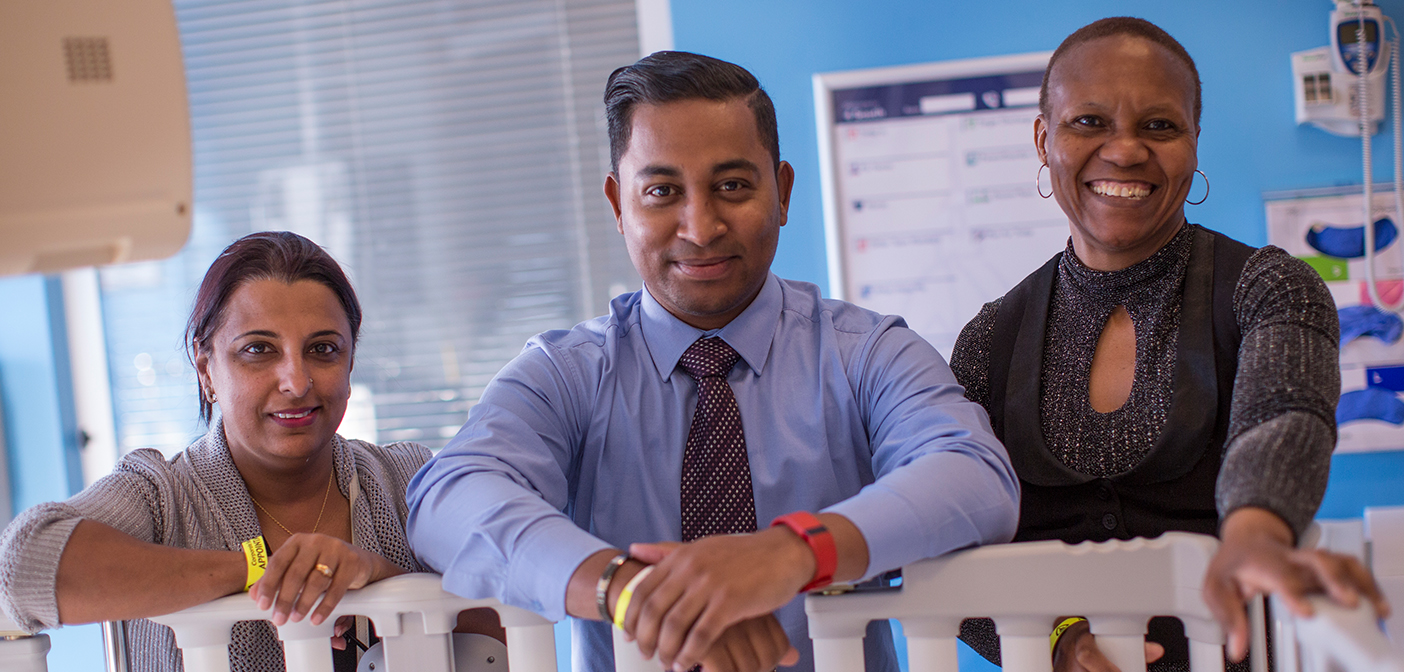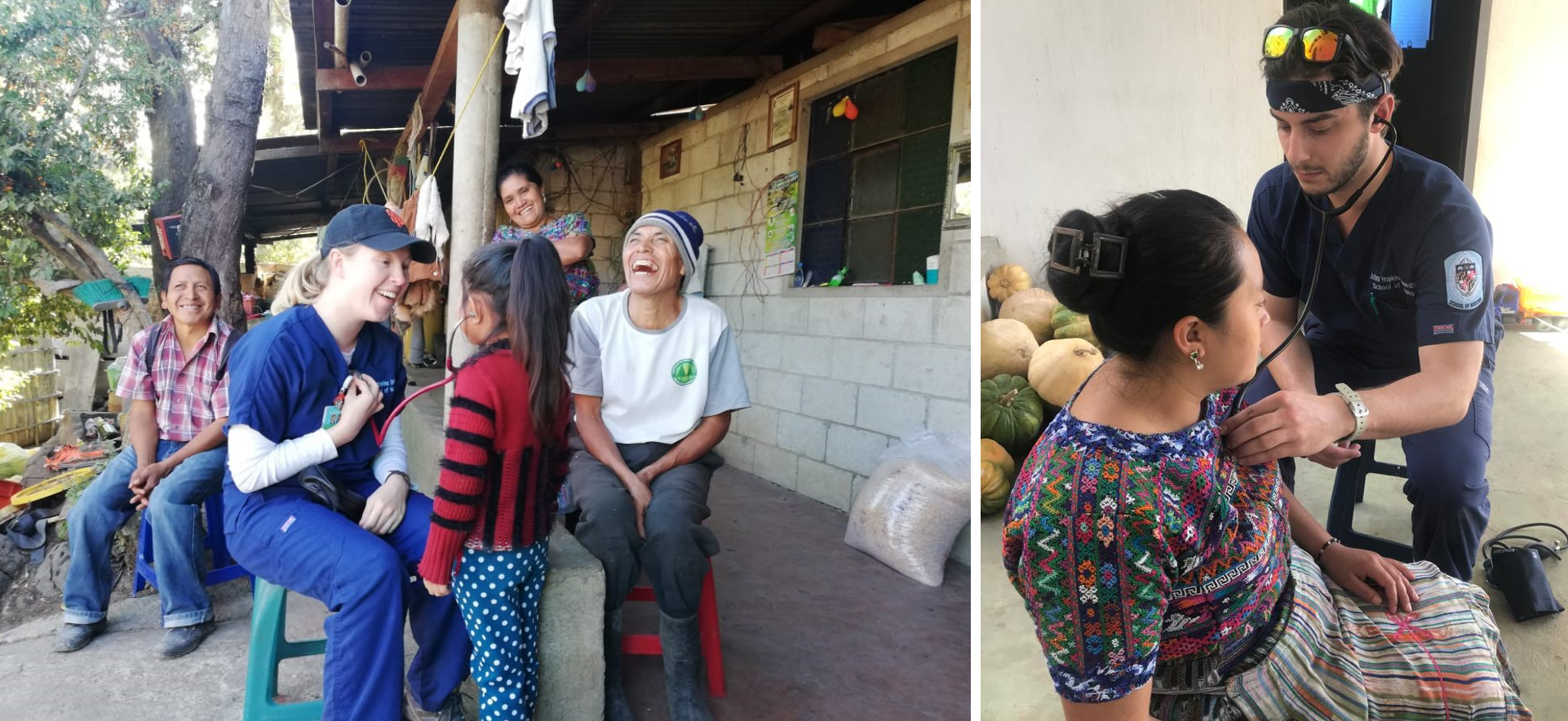Nurse leaders in South Africa empowered, driven by ubuntu
How far will nurses go to ensure that South African children have access to state-of-the-art care for complex illnesses? At least 8,000 miles—roughly the round-trip distance from Johannesburg to Baltimore. And that’s just for starters.
Three nurse leaders from the new Nelson Mandela Children’s Hospital (NMCH) recently visited Jhpiego and Johns Hopkins Hospital to observe, learn, and share nursing strategies in the interest of providing specialized pediatric services that meet or exceed international standards of care.
Stacie Stender, a family nurse practitioner and senior technical adviser for Jhpiego working across sub-Saharan Africa, accompanied the Johannesburg-based NMCH team: Jayson Gopiechand, nursing director; Letennewe Morudu, deputy director, nursing clinical education; and Hamida Ebrahim, infection control manager. As part of a three-year professional exchange, they participated in a patient safety program at the Armstrong Institute and visited pediatric and neonatal intensive care units. In between these stints, Stender and the team sat down at Jhpiego to talk nursing.
Gopiechand described NMCH’s niche in an evolving health care system and its mission of giving every child a chance to live and thrive. As a specialty hospital serving South Africa—and planning to accept referrals from beyond that country’s borders—NMCH seeks to leverage Jhpiego’s regional knowledge and expertise. Stressing research and mentorship, he emphasized the need to fully empower nurses in the delivery of family-centered care.
Ibrahim outlined NMCH’s bold vision of zero tolerance for infection, while Morudu mused about how to make sure that nursing education takes place every day, on the job, in the presence of patients.
In addition to recalling what drew them early on to careers in nursing, the team also explained ubuntu, a “oneness of humanity” philosophy embodied by the hospital’s namesake, who said in 1995: “There can be no keener revelation of a society’s soul than the way in which it treats its children.”
Here’s an excerpt of their conversation:
Stacie Stender (SS): Can you talk about the role of nurses in South Africa?
Jayson Gopiechand: The health status of a country is embodied by its nurses. Nurses play such a pivotal role when it comes to the delivery of care. No model—certainly not the patient-centered approach championed by the NMCH—will be successful or achievable without nursing input.
SS: What’s the health status of South Africa from a nursing lens? Are nurses recognized as leaders, as essential in health care?
Letennewe Morudu: I think we are blessed to be working at NMCH, where nurses have been given the necessary recognition, where we are now applying [the concept of] interprofessional collaboration in terms of nursing—where nobody seems to be on top of the other. At some of the hospitals where we come from, nurses seem to still be subservient, which is what gives them a challenge to give the necessary care, because their voices are not heard.

SS: As antimicrobial resistance becomes a global priority, is NMCH doing anything in terms of advanced practice nursing from an infection control perspective?
Hamida Ebrahim: We are completely changing the organogram to beat antimicrobial resistance. Instead of one office-sitting person in charge of infection prevention and control, there will be infection control champions working on the floor who have a better understanding of the problems and can come up with the solutions and drive quality initiatives at that level.
SS: What is your vision of incorporating research into nursing strategy for NMCH?
Jayson Gopiechand: We will encourage research to happen at NMCH. We want staff to be participative—to feel part of a team that’s contributing toward quality and standards at NMCH. We have ideas about how we want to care for patients, but there needs to be room for innovation, for adaptability. Research is a fundamental and significant component of our nursing strategy.
Letennewe Morudu: Research in clinical nursing is going to bring about a decolonization of nursing. Now, there are compartments in which research is conducted. We encourage NMCH nurses to identify problems, write about them, and bring them into the bigger picture.
Hamida Ebrahim: Sometimes we think research has to be on this big, grand level. We say, “If there is problem in your unit, bring it up, let’s work it out, look at the options, and be part of the solution.” We want staff to have a say in what’s happening in their areas of expertise; to be invested, to participate, and get recognition for it.
SS: Can this one institution have an impact on nursing across South Africa, where nurses are not [usually] asked to give their opinions; and not [traditionally] invited to give input into research questions or solutions?
Letennewe Morudu: The more we put emphasis and importance on our nurses, it is going to create a positive impact on the environment out there, as a whole, outside of us. That’s how we can attract even more nurses, and hopefully be able to change attitudes out there, to say, “This is what nursing is all about.” With our focus on family-centered care, the community is going to talk positively about us, and more people will have a positive eye toward nurses.

Jayson Gopiechand: The 200-bed hospital offers world-class health care services enabled by the latest technology, a team of highly experienced medical professionals, and a commitment to render exceptional service to all. Above all, NMCH will continuously explore new and creative, yet sensible concepts in health care delivery—a quest motivated by the determination to care for the lives of children irrespective of socioeconomic standing.
SS: Looking ahead at nursing, 10 years from now … what do you see?
Hamida Ebrahim: I started nursing years back. The [nursing experience at] NMCH is completely different from [my early days when] nurses were giving baths to patients. Here, now, nurses are doing research, nurse practitioners are prescribing medications. It’s completely on the other end of the world. I see myself doing research, designing innovations.
Letennewe Morudu: NMCH nurses are embracing the chance to influence how nursing evolves not just at this one, world-class facility, but beyond. We are driven by ubuntu. Our dream is to make sure we go beyond … beyond being compassionate, beyond being understanding. Ubuntu is having respect, the utmost respect, for everybody. Then you can give selflessly.

 Forging Policy: How Can Doulas Improve Black Maternal Health?
Forging Policy: How Can Doulas Improve Black Maternal Health? Guatemala Re-visited: Rainwater Project Shows Value of Service-learning Trips
Guatemala Re-visited: Rainwater Project Shows Value of Service-learning Trips You’re Welcome
You’re Welcome My First Teachers in Nursing School Weren’t Nurses
My First Teachers in Nursing School Weren’t Nurses Nursing Named Most Trusted Profession for 22nd Consecutive Year
Nursing Named Most Trusted Profession for 22nd Consecutive Year






